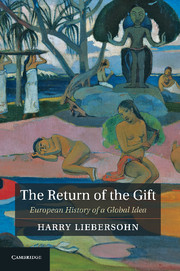1 - The Crisis of the Gift
Warren Hastings and His Critics
Published online by Cambridge University Press: 10 January 2011
Summary
Historians have singled out the late eighteenth and early nineteenth centuries as a period of broad cultural transformation. In addition to the obvious changes of the period – the “dual revolution” (Eric Hobsbawm) in politics and economics that go by the names of French Revolution and Industrial Revolution – this was a moment when ancient European habits and assumptions about the world were undermined and gave way to new ones. Even before 1789, when the world visibly turned upside-down, old ideas took on meanings that presaged a new era for Europeans and the rest of the world. More recently global historians have argued that this was a watershed moment not just for Europeans but also for civilizations and peoples around the world: C. A. Bayly has delineated the decay of old empires and invention of new ones in China, India, and elsewhere, out of a mixture of internal crisis and response, often innovative, to pressures from European merchants and arms. These changes were the setting for uncertainties and dramas in the face-to-face encounters between European and non-European cultures and how those encounters were interpreted on both sides. One way of acting out these controversies was through the kind of reciprocity that we now broadly identify as gift exchange.
Hastings and the Gift on Trial
One day late in the eighteenth century – the century of wigs and silk stockings and privilege based on birth – English society took the measure of its destiny at home and abroad in a public trial.
- Type
- Chapter
- Information
- The Return of the GiftEuropean History of a Global Idea, pp. 9 - 26Publisher: Cambridge University PressPrint publication year: 2010

